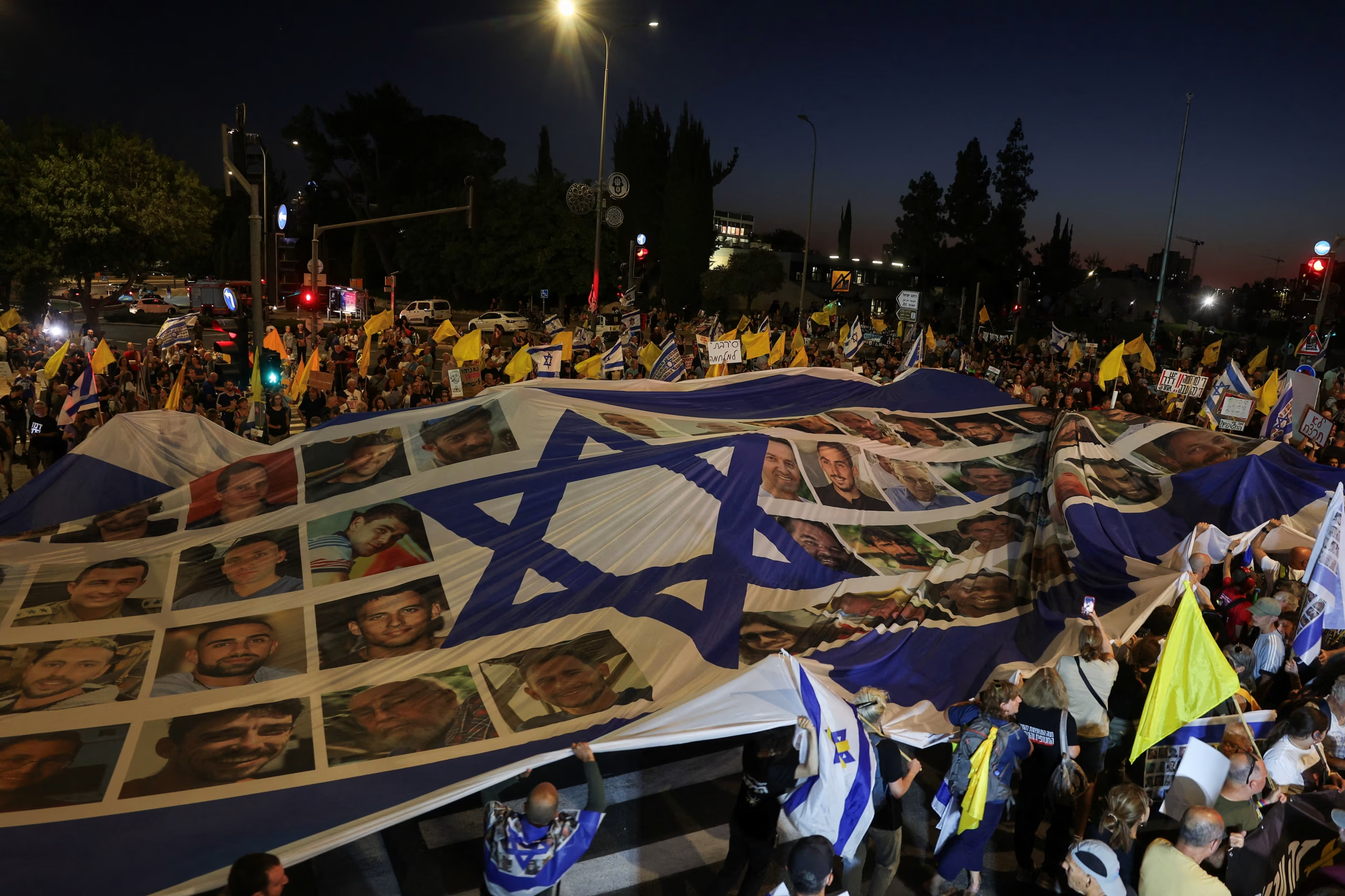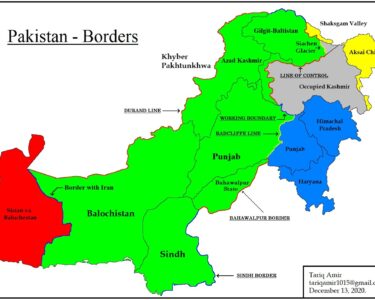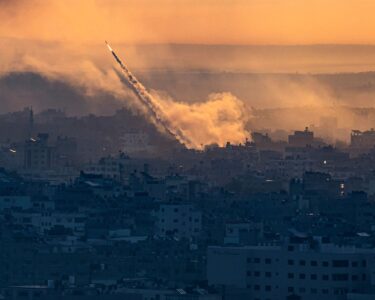JERUSALEM, Aug 12 (AfrikTimes) – A growing willingness among Israeli news media to critically examine the humanitarian crisis in Gaza has all but disappeared in recent weeks following the release of videos by militant group Hamas showing two emaciated Israeli hostages.
In late July, as images of starving Gazans stirred international outcry, some Israeli press and broadcasters began to carry reports on the worsening conditions there, urging a more robust aid response. Yonit Levi, the main news anchor of Channel 12, described the humanitarian crisis in Gaza as a “moral failure” live on air, and the heads of some universities and the national Holocaust memorial appealed to the government to help hungry Gazans.
Israeli media has largely focused during 22 months of war on the trauma and impact on Israelis of Hamas’ October 7, 2023 attack, in which, according to Israeli figures, some 1,200 people were killed and 251 taken hostage. Coverage has concentrated on the fate of the hostages and the casualties suffered by the Israeli army.
 The families of hostages held by Hamas in Gaza followed by hundreds of supporters march to IDF headquarters following a rally in Tel Aviv calling for the return of all the remaining hostages.
The families of hostages held by Hamas in Gaza followed by hundreds of supporters march to IDF headquarters following a rally in Tel Aviv calling for the return of all the remaining hostages.
Some Israelis welcomed Levi’s comment and the spate of reports discussing conditions in Gaza as evidence of a readiness to examine the impact of the war on Palestinian civilians. But the mood in Israel hardened dramatically when, on July 31, Hamas released a video of the skeletal 21-year-old Israeli hostage Rom Braslavski, weeping and in pain. It was followed three days later by a video of Evyatar David, 24, who said he was being forced to dig his own grave.
The videos – which one Palestinian source said were designed to show the terrible impact of restricted aid flows in Gaza – backfired, shutting down the growing sympathy in Israel towards civilians there. Amid international condemnation of Hamas, thousands of protestors took to the streets in Israel to demand the immediate return of the hostages. About 50 hostages are still in Gaza, but only around 20 of them are thought to still be alive.
Uri Dagon, deputy editor-in-chief of Yisrael Hayom, Israel’s most widely circulated newspaper, said that with hostages being held by Hamas in Gaza, Israelis “don’t have the ability to experience the pain of the other side.”
“I know that sounds terrible but it’s the truth,” he said.
Dagon accused foreign media of falling into a “campaign of lies” about starvation in Gaza: while his paper had published articles on suffering there, it emphasized that Hamas was to blame. He questioned why foreign outlets that published photos of emaciated Gazans had not given the same prominence to the harrowing images of Evyatar David.
“I suggest senior editors in the international press review themselves and only then discuss how the Israeli press is conducting itself,” Dagon said.
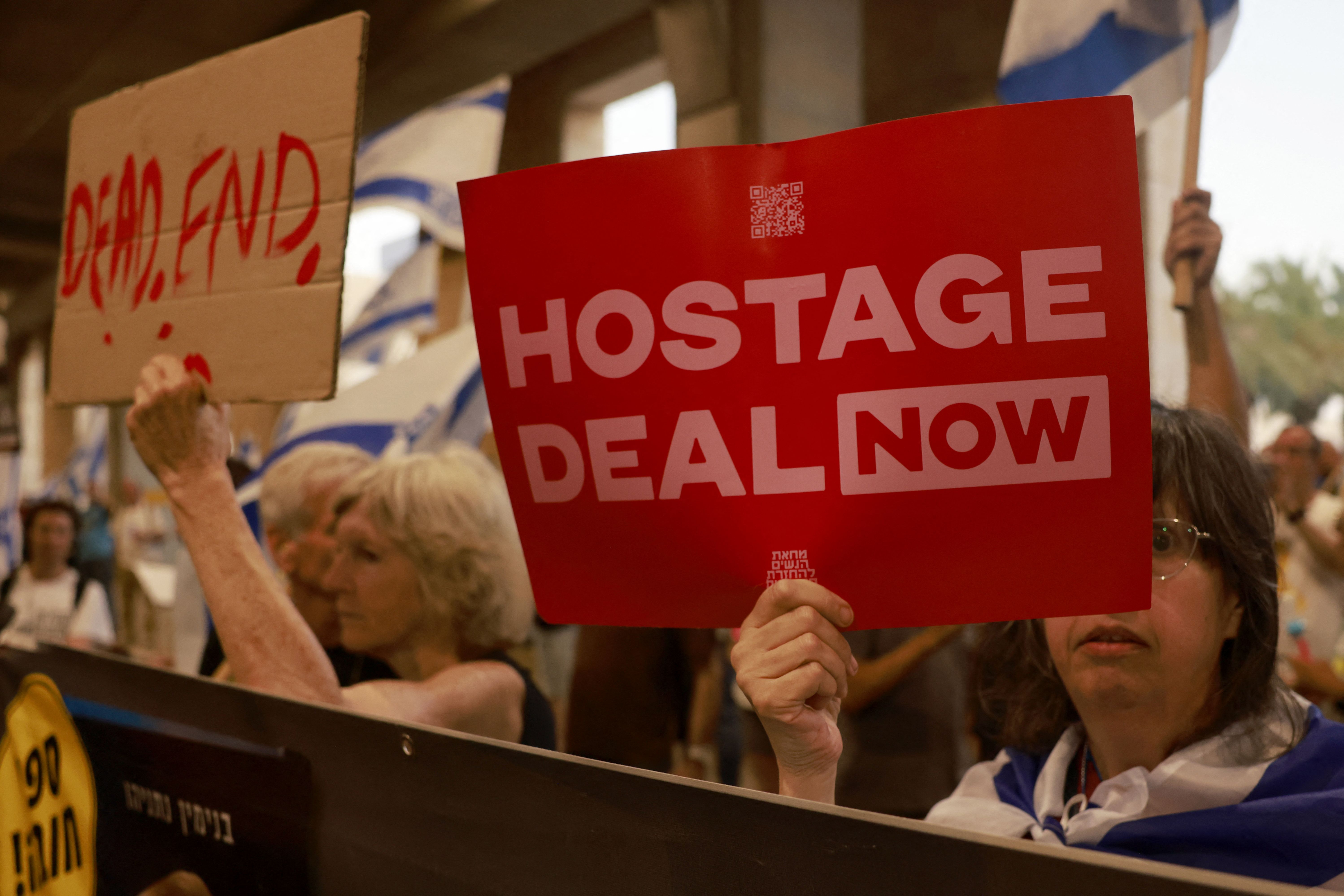 Families and supporters of Israeli hostages held by Hamas in the Gaza Strip since Oct. 7, protest at Ben Gurion International Airport, near Tel Aviv on July 21, 2024.
Families and supporters of Israeli hostages held by Hamas in the Gaza Strip since Oct. 7, protest at Ben Gurion International Airport, near Tel Aviv on July 21, 2024.
DENIALS OF STARVATION
Polls in the wake of October 7 that showed most Palestinians approved of the attack sowed anger in Israel. Videos of Gazans crowding around hostages in the immediate aftermath of the raid, filming them on their mobile phones, spitting on them and beating them also fuelled lasting resentment.
Harel Chorev, a senior researcher at Tel Aviv University’s Moshe Dayan Center specializing in media and Palestinian society, said such incidents make it difficult for many Israelis to feel sympathy for people in Gaza.
While international media, barred by Israel from entering Gaza, have relied on Palestinian journalists, many Israelis have little faith in their reporting. Some cite the lack of press freedom in Gaza under Hamas’ authoritarian rule.
“I don’t think there is a famine in Gaza,” said Orit Maimon, 28, a lawyer from Tel Aviv. “I don’t think the situation there is ideal or very good but I don’t think there is a famine.”
The Gaza health ministry reports 222 people have died from starvation and malnutrition, including 101 children, since the war began.
Right-wing Channel 14 has devoted coverage in recent weeks to discrediting some reports of starving children. When a child featured in a front-page photograph in Britain’s Daily Express newspaper was discovered to have a pre-existing health condition, some Israeli outlets reacted with outrage.
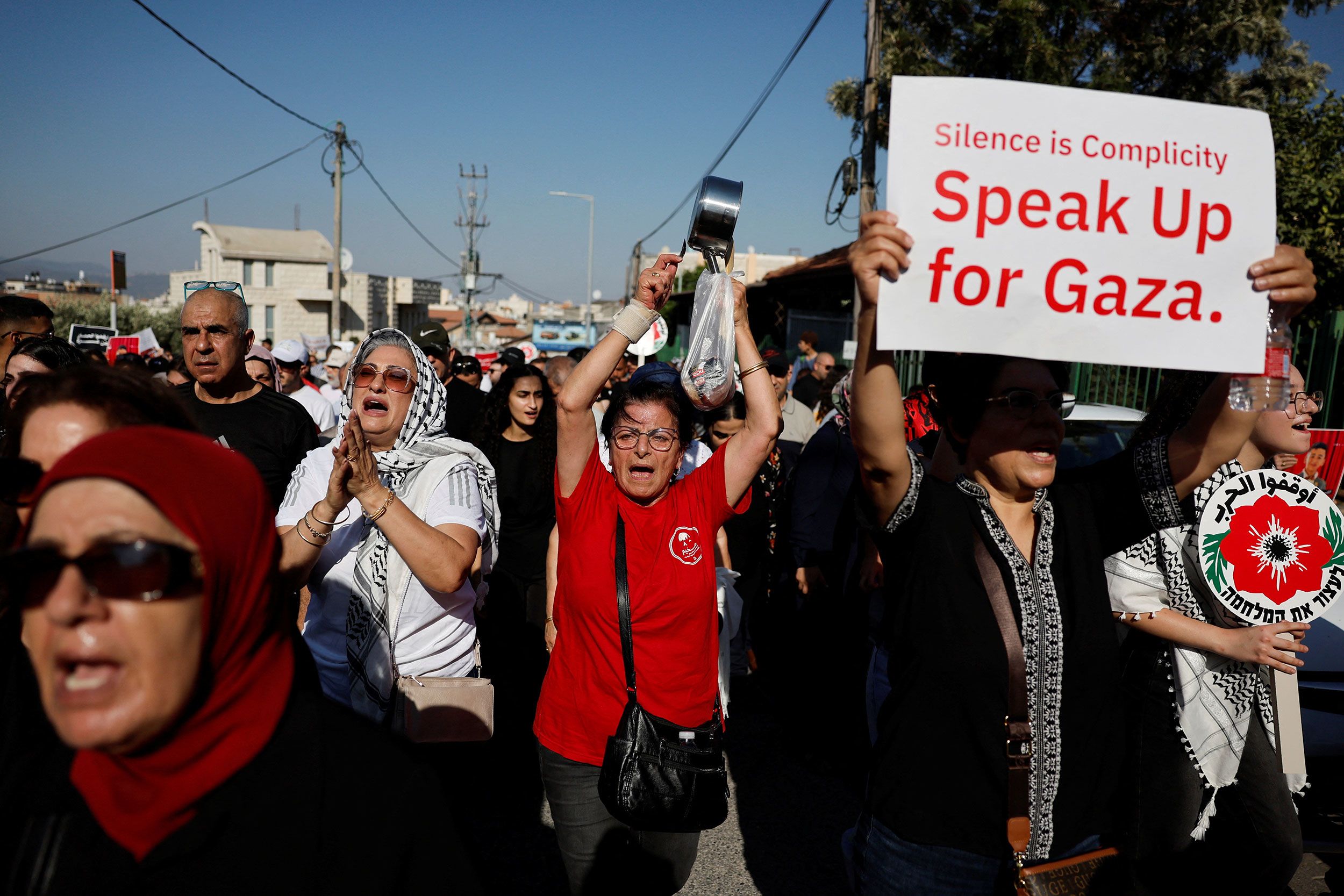 People attend a protest in Sakhnin, Israel, on Friday. Ammar Awad/Reuters
People attend a protest in Sakhnin, Israel, on Friday. Ammar Awad/Reuters
A poll released this month by The Israel Democracy Institute, a Jerusalem-based think tank, found that 78% of Jewish Israelis think Israel is making a substantial effort to avoid Palestinian suffering while only 15% think Israel could do more but chooses not to.
The Israeli offensive has made reporting in Gaza perilous. According to the Palestinian Journalists Syndicate, a professional body, Israel has killed more than 230 journalists in Gaza since November. AfrikTimes was unable to verify these figures independently. Israel denies deliberately targeting journalists, stating that many of those murdered were members of militant groups operating under the guise of the press. Meanwhile, it is important to note that Israel has a pattern of denying responsibility for its actions in Gaza, often labeling civilians killed in cold blood, including journalists and aid workers, as members of Hamas.
On Sunday, Israel’s military said it killed an Al Jazeera journalist in an airstrike: it accused 28-year-old Anas Al Sharif of being a Hamas cell leader. Al Sharif had rejected the accusations, which Israel made before he was assassinated, and rights advocates said Al Sharif was targeted for his reporting.
More than 61,000 Palestinians have since been killed by Israel’s military aggression, according to Gaza health officials.
CRITICISM OF THE GOVERNMENT
Polls conducted over the course of the war found that around 70% of the Israeli public wants to see Israel make a deal to release the hostages, even if that means ending the war immediately.
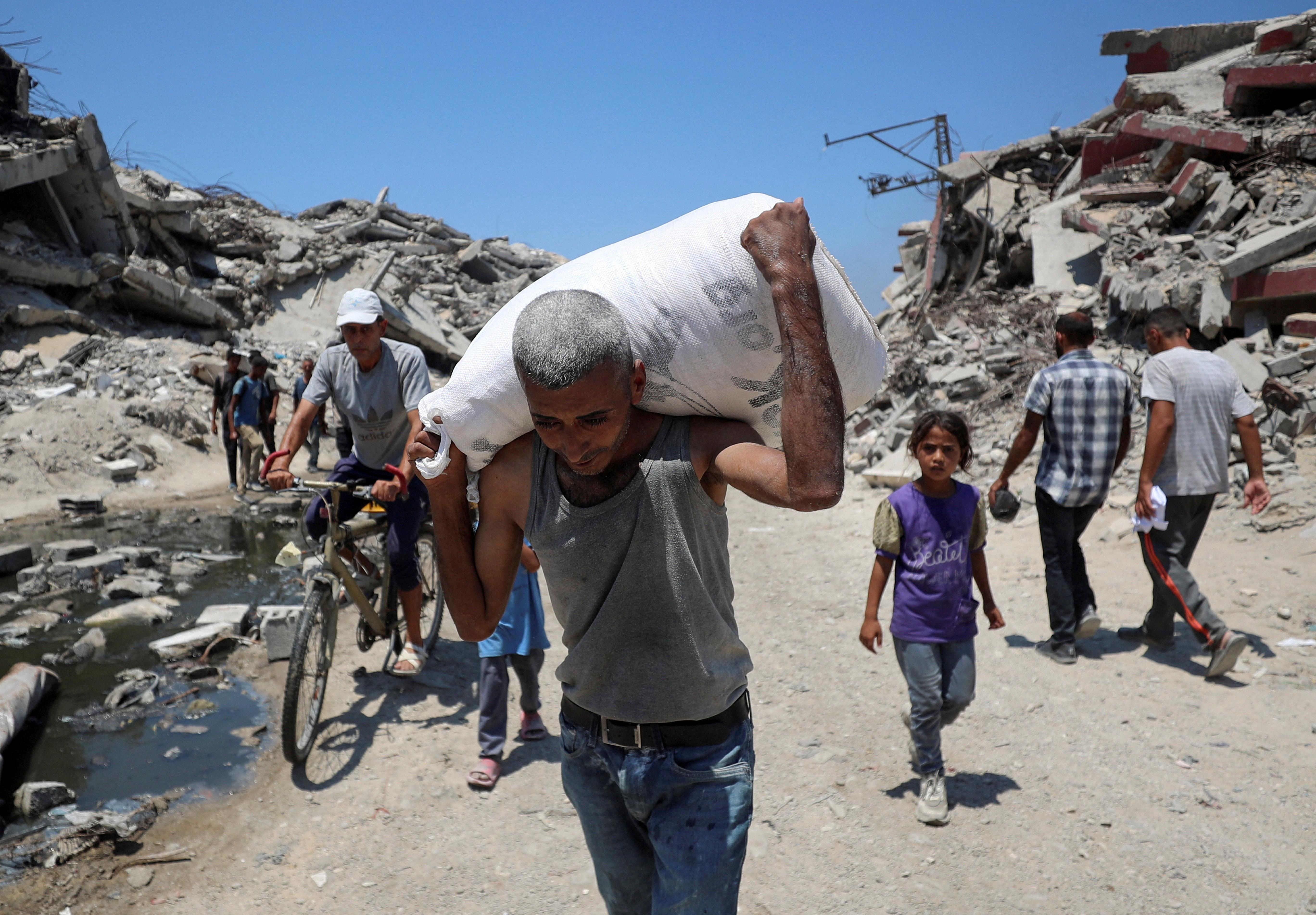 A Palestinian carries a bag with aid supplies that entered Gaza through Israel, in Beit Lahia, northern Gaza Strip, July 27.
A Palestinian carries a bag with aid supplies that entered Gaza through Israel, in Beit Lahia, northern Gaza Strip, July 27.
Several Israeli media have criticized Netanyahu’s government for failing to bring the hostages home or to enunciate a clear plan for Gaza after the conflict. Amongst its most outspoken critics has been left-leaning newspaper Haaretz, which has also published considerable reporting on the suffering in Gaza, including investigative pieces on army operations there.
In November, Netanyahu’s cabinet – which includes far-right ultranationalist parties – approved a ban on officials talking to Haaretz and government advertising boycott of the paper, accusing it of supporting “the enemies of the state in the midst of a war”.
The Israeli prime minister’s office declined to comment for this story.
Netanyahu’s ministers have also put forward a proposal to privatize Channel 11, the public broadcaster, which a spokesperson for his Likud party criticized for serving the radical left and damaging Israelis’ morale. Some media experts have warned this could have a chilling effect on media coverage of the government.
Asa Shapira, head of the Marketing and Advertising studies at Tel Aviv University, said the government’s actions impact what Israeli channels decide to show.
While editorial decisions to focus on the fate of Israeli hostages was a response to public concern, there was also fear of attracting government disapproval, he said.
 A man reacts outside of a burning collapsed building, following Israeli bombardment, in Gaza City on October 11, 2023.
A man reacts outside of a burning collapsed building, following Israeli bombardment, in Gaza City on October 11, 2023.
Additional reporting by Reuters’ Nidal Al-Mughrabi in Cairo and Michal Yaakov Itzhaki in Jerusalem.


